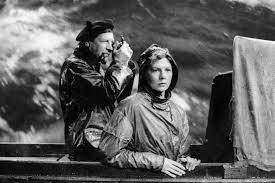- Vitalina Varela Pedro Costa
- The Wild Goose Lake Diao Yi'nan
- Tomasso Abel Ferrara
- Jeanne Bruno Dumont
- Beanpole Kantemir Balagov
- Dick Johnson is Dead Kirsten Johnson
- Emma Autumn de Wilde
- The Platform Galder Gaztelu-Urruitia
- Preparations to Be Together For An Unknown Period of Time Lili Horvat
- Uppercase Print Radu Jude
Honorable Mention
Assassins - White, Lovers Rock - McQueen
Films I Enjoyed
The Assistant, I'm Thinking of Ending Things,
Rose Plays Julie, The Bra,
The Devil All the Time, First Cow,
Love After Love,
Palm Springs, Come to Daddy,
Nomadland, Martin Eden,
Bacurau, Cut Throat City,
Shirley, Babyteeth,
Borat 2, Pieces of a Woman,
Promising Young Woman, The Outpost,
Collective, Blow the Man Down,
Dinner in America,
Deerskin, The King of Staten Island,
Teenage Bounty Hunter, The Vast of Night,
Mucho Mucho Amor, The Hunt,
Never Rarely Sometimes Always, Another Round,
David Byrne's American Utopia,
Let Them All Talk, Tenet,
Gretel & Hansel, I'm Your Woman,
Alone, Lucky Grandma,
Have a Good Trip: Adventures in Psychedelics,
Uncle Peckerhead, Buffaloed,
Scare Package, Minari,
The Invisible Man, A Call to Spy,
Little Fish, Vicious Fun,
Original Gangster, Black Bear,
Caveat, All My Friends Are Dead,
Below the Mendoza Line
Swallow, Possessor,
Freaky, The Sound of Metal,
The Wolf of Snow Hollow, Wife of a Spy,
The Dark Divide, Anything For Jackson,
The Quarry, Her Socialist Smile,
Mank, City Hall,
Amulet, Sh*thead,
The Gentlemen, Relic,
She Dies Tomorrow, Psycho Goreman,
Call of the Wild, Project Power,
The History of the Kelly Gang, The Nest,
1 Dead Dog, Come Play,
The Father, Thorp,
Wonder Woman 1984,
The Other Lamb, The Trial of the Chicago 7,
Sea Fever, Kajillionaire,
The Rental, Unhinged,
Capone, Underwater,
The Dark and the Wicked, Spontaneous,
The Grudge, Wander Darkly,
1 BR, Slaxx,
The Vanished,
Bad Boys for Life, Eurovision Song Contest: The Story of Fire Saga,
Becky, The Old Guard
 |
| A votive candle of a movie... |


































